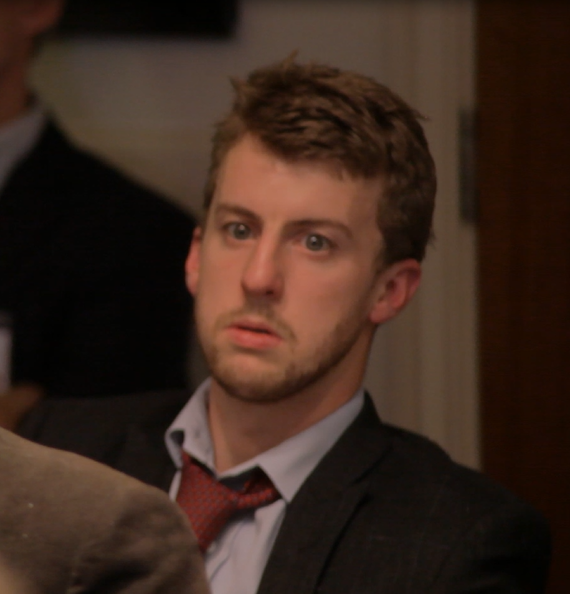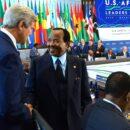Africa comes to parliament with debate in The Commons – By Magnus Taylor

 I attended yesterday’s parliamentary debate on “˜The UK’s relationship with Africa’, along with a handful of others – MPs researchers, school children and tourists – in the public seats of the House of Commons debating chamber.
I attended yesterday’s parliamentary debate on “˜The UK’s relationship with Africa’, along with a handful of others – MPs researchers, school children and tourists – in the public seats of the House of Commons debating chamber.
You learn much about the strengths and weaknesses of our parliamentary system by attending a sparsely populated debate on a Thursday afternoon, where the number of MPs in the chamber fluctuated at around 20.
This particular debate was chaired and introduced by James Duddridge MP, a likeable Tory who is now the chair of the African All Party Parliamentary Group (APPG), and spent much of his pre-parliamentary days working as a banker in Swaziland, Ivory Coast and Botswana.
Duddridge describes himself as an “Afro-optimist or Afrophile,” adding that in parliament there are other like him; “We are not many, but we are a growing breed, and what we lack in numbers, we make up for in enthusiasm and commitment.”
And these “˜Afrophiles’ were largely the people who turned up for this debate. Not high-profile Members of Parliament, but backbenchers with a specific interest in a country, issue or region. Listening to them give their 10 minute speeches tells you much about what MPs think about Africa which, in some small way, must trickle down to how we as a country relate to the continent.
The priorities of these interested MPs are, however, probably quite different from the things that crop up in the in-tray of, for example, David Cameron or William Hague. Africa’s influence on our foreign and domestic policy remains slight, perhaps only coming onto the radar in terms of international development, terrorism and occasionally as factor in our energy and immigration policies.
What backbenchers care about is a mixture of the big Africa issues of the day and more personal interests borne of their experience in the “˜real’ world before politics, and what the priorities of their constituents are.
Here are 5 things that I learned:
- MPs are heavily influenced by their constituents. Several speakers stated that they had gained knowledge of a certain country/issue through having a large diaspora community in their constituency. Where I have seen this most clearly evident is with the Somaliland diaspora which, in Sheffield, persuaded their MP to push for the council to table a motion that called for the recognition of Somaliland as an independent state. This is an important “˜way in’ to Africa for many of the members.
- MPs do get to go to Africa quite a lot. Most speakers sprinkled into their speeches that they had recently been in African country x or y. Tony Baldry, MP for Banbury since 1983, described how he has been to both Juba and Mogadishu and in the past few months. He seemed peeved that in the latter the FCO hadn’t allowed him to leave the British High Commission, located in the airport. But he was proud to add that the Somali President had made the effort to come and see him there.
- Backbenchers can be quite influential. As Africa remains an area of marginal interest for foreign policy, those MPs that choose to take an interest can, like Tony Baldry demonstrates, get a meeting a with the president. I remember an event in parliament where members of the Africa APPG met with the President of Niger and his entourage. This was a motley collection of Lords (no MPs turned up) and a few assorted researchers (the latter mostly in their 20s). Several members of President Issoufou’s entourage promptly fell asleep.
- Just because it’s a debate doesn’t mean any actual “˜debating’ will take place. A “˜debate’ on the UK’s relationship with Africa isn’t so much a “˜debate’ as a collection of MPs talking about their particular area of interest in the continent. For those who follow African affairs closely this would have made the session somewhat tedious at times, but this doesn’t mean the whole thing wasn’t worthwhile. It gave MPs an opportunity to stand up and demonstrate their Africa-interest and set out their stall on various issues. But the most interesting thing I learned was that Meg Hillier, MP for Hackney South and Shoreditch, conducts some of her parliamentary surgeries in French (many of those requiring this service being Francophone Africans).
- The trade not aid “˜agenda’ is winning the day. Henry Bellingham, the former Conservative Minister for Africa, said in his time at the FCO: “I remember that on my second day at the FCO as Africa Minister I went around the Africa directorate and the first question I asked each desk officer was, “What is the bilateral trade between the UK and your country? Where is the flag flying for Kenya, Uganda or Ghana?” Very few knew the answer, but from that moment onwards every brief started with the figures for bilateral trade. I am very glad that there is now a huge amount of emphasis on that.” “˜Aid’ was mentioned, but normally in the context that we should scrutinise how it is spent better. A sign of the times.
Magnus Taylor is Editor of African Arguments.






No mention of re-instating sanctions on Zimbabwe then?